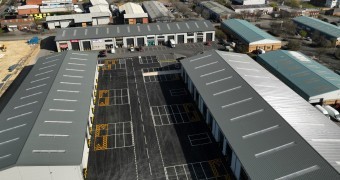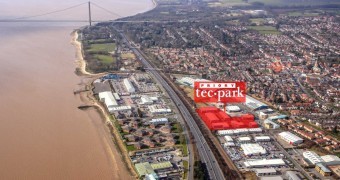Table of contents
What is a structural survey?
If you’re considering purchasing a commercial building one of the most important parts of the research you’ll need to do is to get the property surveyed. The process of a full structural survey, also simply referred to as a building survey, is similar to a residential property survey but differs in some very important areas.
There is no such thing as a standard commercial property survey. As every building is different, so are the requirements of the purchasers. A commercial property survey can also be more detailed than a domestic one and may focus on the areas of main concern which the purchaser has – this information can be personalised to suit the purchaser’s precise requirements. There are three main types of commercial property building survey:
- A building survey
- A schedule of condition
- A schedule of dilapidations
Expert knowledge and practical advice
Operating in a network of offices across the nation, our team of over 60 building surveyors we can provide a wide range of consultancy services. We can provide a solution for your commercial property requirements.
What is a building survey?
A building survey includes a detailed inspection and report undertaken by a qualified and highly-experienced surveyor. This will give the prospective purchaser a clear picture of the condition of the building in question. It will give comprehensive details of its current condition, highlight any defects, and suggest solutions to maintenance issues which may arise in the future. The report may also be illustrated with photographs to give a more complete picture.
As most modern commercial buildings are often constructed from materials such as steelwork, reinforced concrete or exterior cladding, which are not common in domestic properties, it is important to have an understanding of the technical nature of the construction. Surveyors are legally obliged to find and report on any major problems they discover in a property. They will examine the roof, the walls, the floors, the windows and doors, any chimneys or cellars in the property, as well as outbuildings and garages. They will also look in manholes and cupboards, and inspect the services.
What is included in a building survey?
When conducting a building survey, our commercial building surveyors will check for potential problems such as:
- Whether supporting walls have been altered
- Renovations which have taken place without the appropriate planning permission
- Any evidence of hazardous materials in the property, such as asbestos
- Whether the property has evidence of damp or dry rot
- Any insect infestations, such as woodworm
- Unusual cracks which may be evidence of subsidence
- Whether the roof and masonry work is in good condition
- If the supporting timbers or steels are damaged
- Whether there are any large trees near to the property which may cause drainage or foundation issues
What are the benefits of using a building surveyor?
There are numerous reasons why you should commission a Building Survey prior to purchasing any commercial property. The most obvious of these is to reassure yourself that the property will not need unforeseen expenditure after purchase. In addition, when purchasing a commercial property in order to rent it out, complex legislation will apply both to the landlord and the tenant. If problems arise during the survey, it strengthens your position in any negotiations you may wish to undertake to lower the price, or gives you the option to withdraw from the purchase altogether.
What is included in a schedule of condition?
A schedule of condition report will document the condition of a commercial building as it currently stands and provides invaluable information for any potential tenants. It will investigate every element of the building, and detail them along with relevant photographs. It can be commissioned by a property owner who has refurbished his or her premises before handing it over to a tenant in order that its condition can be documented and returned to this condition at the end of the lease. It should also be commissioned by tenants before signing a commercial lease in order to limit future repair and maintenance liability.
What is included in a Schedule of Dilapidations?
At the end of a lease, the tenant is expected to return the property to the landlord in a good state of repair. A full schedule of dilapidation can be commissioned by either party to review the condition of the building and to decide on what repairs are necessary. The tenant can then either make the repairs themselves or negotiate a figure with the landlord to cover the costs of the work.
So whether you’re considering purchasing a commercial property or are already involved in leasing one or more to a tenant, the importance of commissioning a building survey cannot be underestimated. The team at Eddisons can advise you on your options, and because they’re all highly experienced and qualified, so you can have the reassurance that your survey will be handled in a professional, independent manner so that you have the information you need to make an informed choice.
Experts in commercial property
Contact our team of leading auctioneers, property agents, and RICS-qualified surveyors today.












